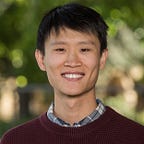Announcing: Aduo, an open-source, less-than-$100K, plug-in garage ADU solution for the Bay Area
If accessory dwelling units (ADUs) are the low hanging fruit of affordable housing, garage conversions are the low hanging fruit of ADUs.
Garages have existing walls and roof structure that can be repurposed for the ADU. They have optimal driveway access for new construction. They can be converted to an ADU without the need to replace the parking spaces (thanks to 2020 state law). And car ownership is generally on the decline, so more and more garages are just used for storage. For all these reasons and more, existing residential garages may present the single best opportunity to quickly and inexpensively generate new housing for low-income renters — and new wealth for low-income homeowners.
However, garage conversions are still challenging and cost-prohibitive for under-resourced property owners in the Bay Area. Over the last few years, we’ve gotten to know many families in East Palo Alto and surrounding communities who’ve built or inherited unpermitted garage conversions, which leave vulnerable tenants at perpetual risk of eviction if a building code violation is issued. With philanthropic support from Facebook, we’ve been able to legalize some of these homes and keep tenants housed. But through this humbling experience, we’ve gained a first-hand understanding of how important this type of naturally affordable housing is for preventing displacement, how many barriers owners can face when considering a legal permit, and therefore why so many resort to less safe, less sustainable strategies. Our team is partnering with local governments and other nonprofits like EPACANDO and Soup to lower barriers and streamline processes across the whole system from education to permitting to financing.
Still, a fundamental physical problem remains: there is not yet a cost-effective, scalable solution for building the most accessible form of ADU, inside of an existing garage. Yes, there are high-quality, factory-built products on the market, but nearly all are detached ADUs designed to be placed in a backyard, and most are designed for high-end consumers. How can we open the (garage) door to second units for the vast majority of single-family parcels?
Meet Aduo, an open-source, plug-in garage ADU solution.
Aduo is equal parts product and process. We will produce free designs for a compact “core” module containing the most complex parts of a dwelling unit: the bathroom and kitchen. This core can be built off-site by any number of manufacturers and rolled into the garage, almost like a car, where it can then be quickly connected to the existing electricity and plumbing systems. A typical Aduo project will involve some initial sitework to prepare a “blank canvas” inside the garage, then installation of a prefabricated core, then finishing touches, all with the help of a detailed, IKEA-style instruction manual. Because of the time and materials savings, and our commitment to a not-for-profit, open-source design, we are confident the average project, all costs considered, can be completed under $100K.
Over the next year, with generous support from the Philanthropic Ventures Foundation and the Facebook Housing Innovation Fund, we’ll be designing the Aduo system and invite you to follow our collaborative journey through regular blog posts and videos. We also invite you to be one of the first to test drive Aduo. Let us know if you are an East Palo Alto, Belle Haven, or North Fair Oaks homeowner interested in a plug-in garage ADU, and we’ll review your property and your situation. We’ll be honored to select some number of households to work with on a garage ADU, where you invest no more than $100K — if the cost goes over, we’ll cover the difference. Furthermore, if you agree to rent at below-market rates, we’ll deliver the project at a lower cost. We’ll complete the first Aduo project by the end of 2022, with hopefully many more on the way. Together, we will co-produce a public good that makes our communities more diverse and equitable for our current and future neighbors. Affordable housing has never been more ADU-able!
Follow this Medium publication, Follow us on Facebook, and fill out this form if you’re interested in Aduo for your home.
